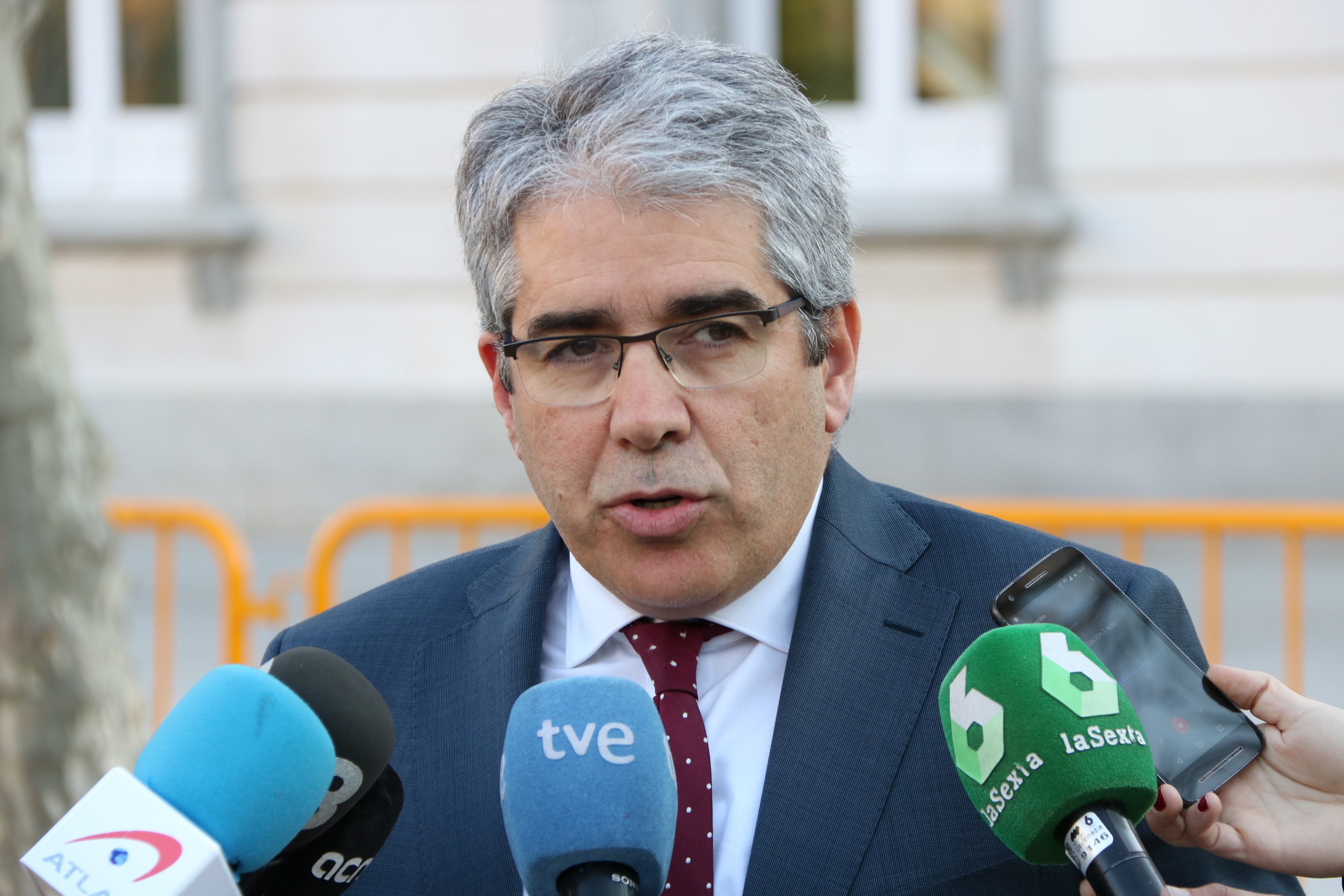A new legal suit against Spain in the European Court of Human Rights (ECHR). In this instance, it has been presented by the former Catalan minister of the presidency, Francesc Homs, challenging the sentence he received from the Spanish Supreme Court of a 13 month ban on holding office, for his part in Catalonia's unofficial independence vote, the so-called Consulta, held exactly seven years ago on 9th November, 2014. That sentence forced him to relinquish the parliamentary seat he held subsequently, in the Congress of Deputies. Homs has complained to the ECHR that his right to an independent and impartial tribunal was violated, as well as the right to present exonerating evidence and the right of access to justice.
In his submission to the European court he explains that, 12 days after the 2014 consultation, Spain's chief public prosecutor, in contravention of the decision of the board of public prosecutors of Catalonia, ordered a complaint to be laid for disobedience, abuse of authority and misuse of public funds, against president Artur Mas, vice-president Joana Ortega and minister Irene Rigau. The text notes that Homs was excluded from that complaint, but a year later, just after he had taken his seat in Congress, the prosecution ordered, "by surprise" and without any new facts, that he be investigated for the case.
Francesc Homs: "I have the belief that at least in Europe we will have a neutral arbitrator on the case."
No second instance
Homs was tried and convicted by the Supreme Court on the basis of his condition as an MP, thus having to be tired before the high court and being unable to appeal to a second instance. “Not only was he deprived of a second judicial instance, but also, he was, at all times, tried by judges appointed directly (in the case of the Constitutional Court) or indirectly (in the case of members of the Supreme Court) by Spanish political parties contrary to his own political postulates, and always partisan”, asserts the appeal.
Among other issues, the case alleges that statements by key defence witnesses were rejected, among them former Spanish prime minister Mariano Rajoy, as well as the presentation of documentary evidence; and it recalls that the suspension of the execution of the sentence was denied even though it forced him to abandon his seat in Congress, thus altering the composition of the lower house.
It also asserts that Homs’s defence was harmed by the refusal to allow relevant defence witnesses and a report from public prosecutors that exonerated him; and moreover, this refusal was made, says the submission to the European court, without justifying the decision and in an arbitrary manner.
Homs was sentenced to a 13 month ban on holding office, forcing him to relinquish his seat in the Congress of Deputies. Subsequently, the Court of Accounts also investigated those responsible for the Consulta and required members of the government to repay 4.9 million euros, the amount of public spending it deemed they had illegally authorized on the vote. President Artur Mas and his ministers had to cover this amount by offering their homes as surety to avoid asset confiscation until the pro-independence Solidarity Fund was able to provide the money reclaimed from them.
In the main image, the former Catalan minister of the presidency, Francesc Homs / ACN

